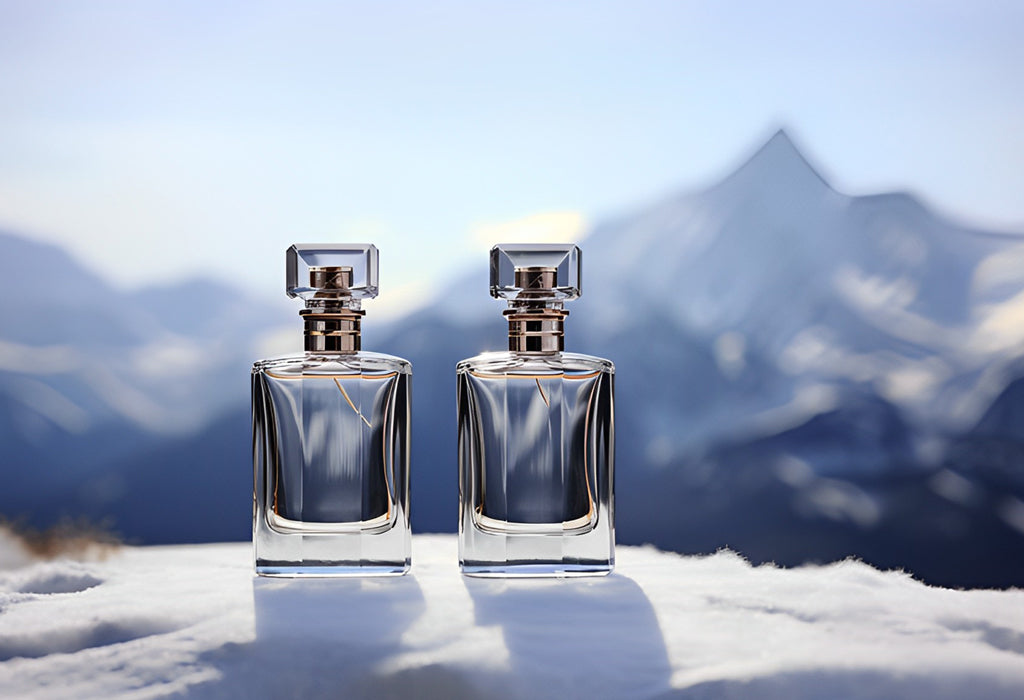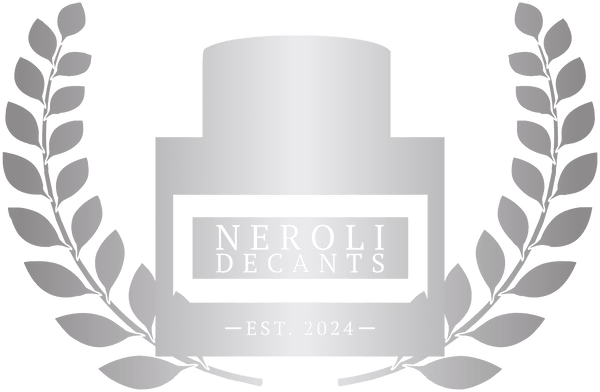Beginners Glossary
Here’s a quick glossary of 20 essential perfumery words every newcomer should know—because knowing the lingo makes the fragrant journey a whole lot sweeter:
-
Note
Definition: Individual scent components in a fragrance (like citrus, rose, or vanilla). Think of them like “flavors” that combine to make the overall perfume. -
Top Note
Definition: The first scent you smell after spraying, often fresh or citrusy. These grab your attention but fade quickly—like a splashy opening act at a concert. -
Heart (Middle) Note
Definition: The core of the perfume that emerges once the top notes evaporate. This is the perfume’s main melody, usually floral, fruity, or spicy. -
Base Note
Definition: The grounding scents that linger the longest, like woods, musk, or amber. They’re the finale that sticks around on your skin. -
Accord
Definition: A harmonious blend of multiple notes that form a completely new and distinct scent—kind of like mixing colors to create a totally different shade. -
Sillage
Definition: The scented trail your perfume leaves behind (a.k.a. your fragrance “footprint”). High sillage = people can smell you coming (in a good way, hopefully). -
Projection
Definition: How far a perfume “projects” from your body. If sillage is the trail behind you, projection is how much the scent radiates around you. -
Dry Down
Definition: The final phase of the perfume once it’s fully settled on your skin. This is where base notes shine and you see the perfume’s true character. -
Olfactive Family
Definition: A classification system for fragrances (e.g., Floral, Oriental, Woody, Fresh). It’s like sorting your music playlists by genre. -
Eau de Toilette (EDT)
Definition: A lighter concentration of fragrance oils (around 5-15%). Typically more affordable and great for everyday spritzing. -
Eau de Parfum (EDP)
Definition: A stronger concentration (around 15-20%). Has better staying power than an EDT, so you can still catch whiffs of it by day’s end. -
Extrait de Parfum (Parfum/Perfume)
Definition: The most concentrated form (20-30% or more). Also the most luxurious (and often pricey), designed to last for hours without reapplication. -
Nose (Perfumer)
Definition: The mastermind behind the fragrance—essentially the “chef” who concocts the recipe. Their trained nose can detect and balance even the tiniest scent details. -
Essential Oil
Definition: Natural aromatic oils extracted from plants (like lavender or bergamot). Often used as building blocks in perfume formulas. -
Absolute
Definition: An ultra-concentrated, super-potent aromatic extract (e.g., jasmine absolute). It’s like the espresso shot of the perfume world. -
Resinoid
Definition: A thick, resin-like material extracted from plants or gums (e.g., myrrh, frankincense). Adds depth and richness to a fragrance. -
Gourmand
Definition: A fragrance style that smells edible or dessert-like—think vanilla, chocolate, caramel, or cotton candy. Perfect for the sweet tooth in you. -
Fougère
Definition: (Pronounced “foo-jair.”) A classic olfactive family meaning “fern-like.” Usually features lavender, oakmoss, and coumarin for a fresh, masculine vibe. -
Flanker
Definition: A new fragrance that’s based on an existing, popular one (like a sequel to your fave movie). Same DNA, but with a twist—different notes or concentrations. -
Layering
Definition: Wearing multiple fragrances (or matching body lotions and shower gels) to create a custom scent signature. It’s like perfume mixology for your skin.
Understanding these terms is like having a backstage pass to the perfumery world. Go forth, explore, and let your newfound vocab guide you to your perfect scent!
Let customers speak for us
from 222 reviewsSmells great! Will continue buying from this seller!! 3 orders and flawless execution on their part.

Really like this scent!
Neroli ships fast and hasnt let me down yet!
5 stars

Creamy sandalwood, loved it, and the shipping by Neroli Decants was amazing. Lots of padding and excellent packaging, will be purchasing again.

My favorite tea scent by far. It’s not too heavy which is appreciated since it’s on the sweeter side. The opening is wonderful but the dry down is my favorite part. Projection and longevity are also good!

Very long-lasting, spicy, cinnamon scent.The smeel reminds me of cinnamon discs spicy candy, or Red Hots candy.May not be for everyone, but if you love thesmell oofspicy cinnamon, you will love this. Also great as a base for layering under a scent that is too sweet.

I love this fragrance. It smells good and projects well.

Beautiful fragrance, excellent service. Very well packaged, delivered fast. Definitely gonna continue buying from this seller. Thank you!

This is one of my favorite fragrances. My lady loves this scent on me.

I only shop with neroli !! They have the best prices and very fast shipping, looking forward to keep supporting them!

Fast service. Fragrance seems to be the real thing. Will definitely buy from them again.






